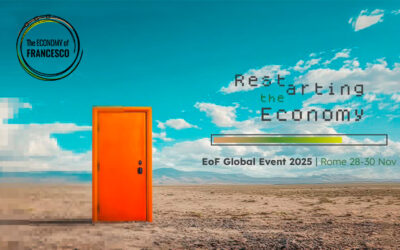Every year, as we await Christmas, we hear the invitation to “prepare the way for the Lord”. (cf Is. 40:3. God, who has always shown a burning desire to be with his children, comes “to dwell among us.” In this passage Chiara Lubich suggests how to prepare for his coming and to open our hearts to Jesus who is to be born. We ourselves often feel the desire to meet Jesus, to have him at our side as our travelling companion in life, to be filled with his light. In order for him to enter our lives, however, we must first remove the obstacles. It is no longer a question of paving the way, but of opening our hearts to him. Jesus himself names some of the barriers that close off our hearts: “theft, murder, adultery, greed, malice, deceit, licentiousness, envy, blasphemy, pride…”. (Mk 7:21-22). Sometimes it is resentment towards relatives or friends, racial prejudice, indifference to the needs of those close to us or lack of attention and love in the family… (…) How can we concretely prepare the way of the Lord? By asking for his forgiveness each time that we have put up a barrier that prevents us from being in communion with him. This sincere gesture of humility and truth allows us to stand before him as we are, acknowledging our fragility, our mistakes, and our sins. This is an act of trust by which we accept his fatherly love, which is “merciful… and abounding in kindness” (Ps 103:8). It expresses our earnest desire to improve and to begin again. Then at night, before going to sleep, we might stop for a moment to take stock and see how we did and ask for God’s forgiveness. If we are Catholic, when we gather to celebrate the Eucharist we can be more aware and fervent in the expression of contrition repeated at the beginning of the liturgy. It is the moment when together as a community we ask for forgiveness for our sins. Then individual confession, the sacrament of God’ forgiveness can be of enormous help. It is a moment of encounter with the Lord when we can hand over to him all our mistakes. We leave confession with the certainty that we have been saved and made new, and we experience the joy that comes from discovering that we are true children of God. And God himself, through his forgiveness, is the one who removes every obstacle, who “makes straight the highway” and establishes a bond of love with each one of us again.
Chiara Lubich
(Chiara Lubich, in Parole di Vita, edited by Fabio Ciardi, Cittá Nuova, 2017, p. 766-768)




0 Comments